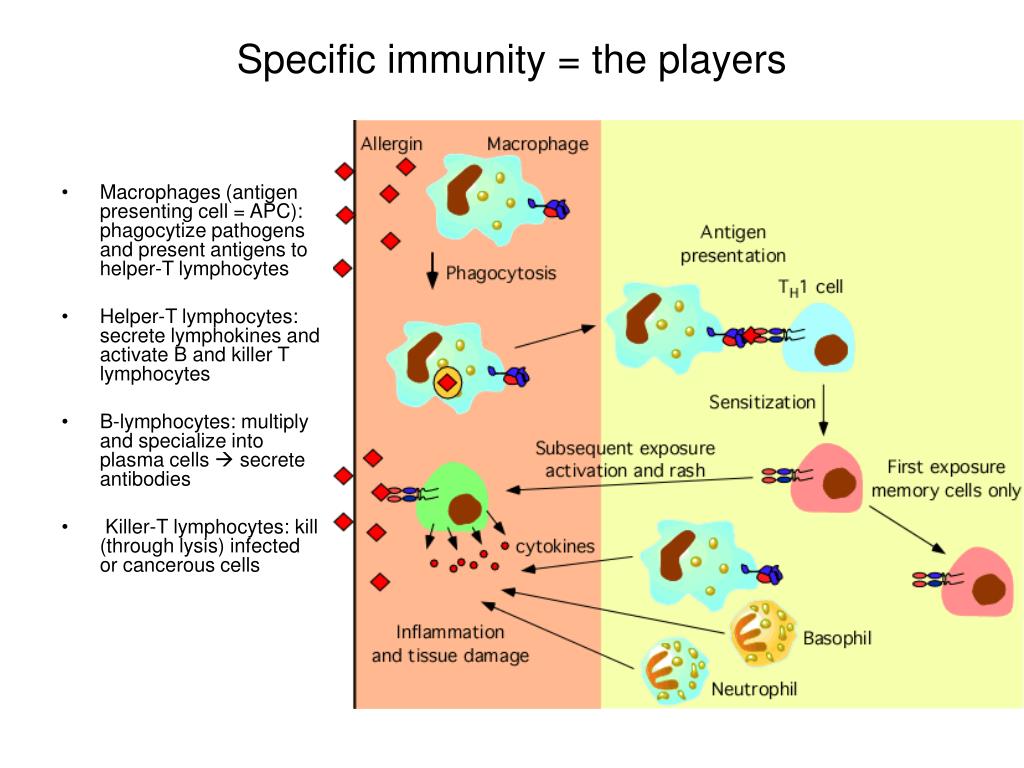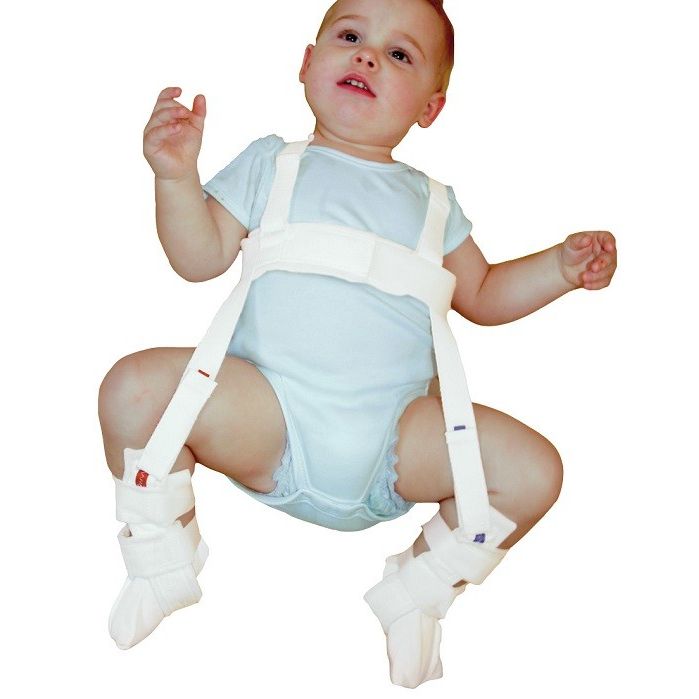How long should a child play video games
Healthy Limits on Video Games
The vast majority of children and adolescents in the United States play video games. Although many children play them in moderation, without adverse consequences, others become obsessed with gaming. Parents may become worried when a child is neglecting homework to play games, or is staying up all night gaming and is too tired to get up for school the next day. Some parents notice that their child rarely socializes in person with others and spends all free time on video games. Some children start to cover up how much they are playing.
In this excerpt adapted from Pause and Reset: A Parent’s Guide to Preventing and Overcoming Problems With Gaming, Nancy M. Petry, PhD, offers guidance on how to effectively limit gaming to a healthy level. Whether the goal is to prevent a child’s gaming from becoming excessive, or to roll back play that seems out of control, Dr. Petry offers practical, parent-tested strategies for getting a handle on the role of video games in your child’s life.
For children and younger adolescents, and even for older adolescents under the age of 18, you as a parent should have the bulk of the say in determining appropriate limits to gaming. Having clear and consistent guidelines related to video games prevents excessive playing. However, two- thirds of US children and adolescents indicate that their parents have “no rules” related to time spent on media use. Be sure you are no longer part of that majority! Here are guidelines for limiting gaming for your child:
1. Remember that gaming should occur only after your child completes his other responsibilities for the day. That should include homework and household chores. Be sure to check the quality and completeness of homework and chores prior to allowing your child to begin playing. Playing video games should be a privilege that is earned. Gaming is not an inalienable right!
2. Put clear limits on your child’s gaming. The American Academy of Pediatrics suggests time allotted should be under 30 to 60 minutes per day on school days and 2 hours or less on non- school days. The group recommends even lower limits of under 1 hour of total screentime per day for children under 6 years old, and they encourage parents to determine the appropriate amount of time for video games and other electronic media use for children over the age of 6. They provide an online planner to assist parents in deciding on screentime. Regardless of what limits you think are appropriate, some days each week should involve no gaming. It is crucial to ensure that your child develops, maintains, and enjoys other, non-screentime activities.
The group recommends even lower limits of under 1 hour of total screentime per day for children under 6 years old, and they encourage parents to determine the appropriate amount of time for video games and other electronic media use for children over the age of 6. They provide an online planner to assist parents in deciding on screentime. Regardless of what limits you think are appropriate, some days each week should involve no gaming. It is crucial to ensure that your child develops, maintains, and enjoys other, non-screentime activities.
3. In designing your rules, consider a reasonable time frame for reassessment. You can follow your plan for 1 or 2 months and then reevaluate it. Instituting a temporary change will result in greater buy-in than a permanent change. You may decide that the initial plan is too restrictive. You could then loosen it after a couple of months if your child is adhering to it and no problems are evident. Remember that it is easier to loosen restrictions than to tighten them.
4. Determine a realistic consequence for breaking the rules. The outcome for violating the rules must be enforceable and immediately applicable. You do not want to tell your 14-year-old child she cannot get her driver’s permit when she is 16 if she breaks the rules next week. A more reasonable option is a complete ban on gaming (or media use more generally) for several days or weeks if she does not abide by the rules.
5. Make sure you know and approve of which games your child is playing. As a parent of a minor, you have the right — and the responsibility. Ask him directly or view web browsers if you are unsure. Find out about his preferred games. In addition to setting rules about times for playing, you should also include rules related to the types of games allowed. You can and should prevent purchase and use of games with extreme violence or graphic sexual content.
6. Once you have established your rules, you must consistently monitor and apply them. You cannot allow your child to bend the rules when you are tired or distracted. You cannot apply the rules differently if your child feels ill or does not have any homework one day. Regardless of other issues that arise, you need to follow through with the consequences immediately if your child breaks the rules. You must feel comfortable with the plan you propose, and you must be committed, willing and able to follow through with it. If both parents are involved, both must be on board with the monitoring of gaming time and rules surrounding it.
You cannot allow your child to bend the rules when you are tired or distracted. You cannot apply the rules differently if your child feels ill or does not have any homework one day. Regardless of other issues that arise, you need to follow through with the consequences immediately if your child breaks the rules. You must feel comfortable with the plan you propose, and you must be committed, willing and able to follow through with it. If both parents are involved, both must be on board with the monitoring of gaming time and rules surrounding it.
7. Identify other recreational activities. Replacing gaming with other activities is critical to changing excessive gaming behavior. Your child is gaming in large part because she finds it fun and it is something she is good at. Gaming can be done virtually any time, with little planning or effort. Because many devices are used for other activities, a game is just one click — and one second — away. When your child has little else to do, games are always there to fill the time. To help your child fill free time, actively promote participation in other recreational activities. Consider activities that you and other family members can do with your child. The replacement of activities should be on the days of the week and during the times of the day when your child most often plays video games.
To help your child fill free time, actively promote participation in other recreational activities. Consider activities that you and other family members can do with your child. The replacement of activities should be on the days of the week and during the times of the day when your child most often plays video games.
8. Offer positive reinforcement for non-gaming activities. Provide rewards to your child when he or she is involved in activities that do not relate to gaming. These rewards can be tangible, involving actual goods, services or even money. They can also be intangible, such as verbal praise or simply attention. You can replace gaming times with rewarding recreational activities, and these activities can also serve as rewards for not gaming. If your child has been gaming at a level that is causing harm, most likely one of the adverse consequences has been a worsening of your relationship with him. Positive reinforcement for non-gaming activity is one way to improve that relationship, and that can be rewarding to a child, too.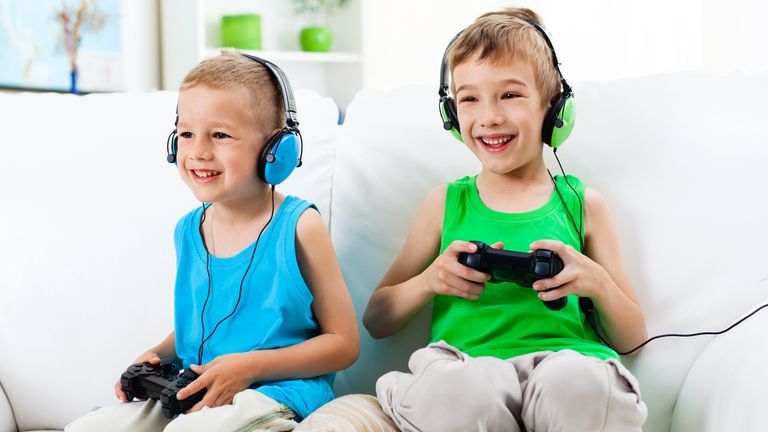
Pause and Reset: A Parent’s Guide to Preventing and Overcoming Problems with Gaming is by Nancy M. Petry, PhD. Copyright © 2019 by Author and published by Oxford University Press. All rights reserved.
Nancy M. Petry, PhD, was a behavioral scientist who conducted research on addictive disorders and a professor of medicine at the University of Connecticut School of Medicine.
How long should children be allowed to play video games? -- ScienceDaily
Science News
from research organizations
- Date:
- September 9, 2016
- Source:
- Wiley
- Summary:
- A new study indicates that playing video games for a limited amount of time each week may provide benefits to children, but too much can be detrimental.
- Share:
FULL STORY
A new study indicates that playing video games for a limited amount of time each week may provide benefits to children, but too much can be detrimental.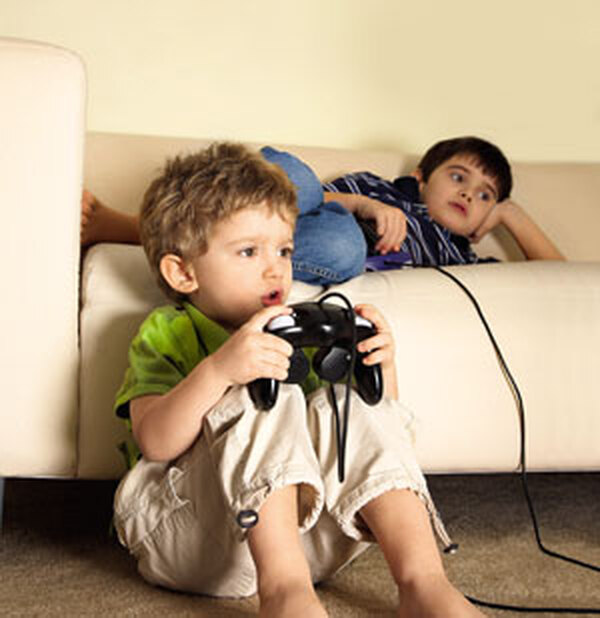 The findings are published in the Annals of Neurology.
The findings are published in the Annals of Neurology.
advertisement
There's much debate over the potential benefits and risks of video gaming in children and teens. To provide some clarity, Jesus Pujol, MD, of the Hospital del Mar in Spain, and his colleagues investigated the relationship between weekly video game use and certain cognitive abilities and conduct-related problems.
In their study of 2442 children aged 7 to 11 years, the researchers found that playing video games for one hour per week was associated with better motor skills and higher school achievement scores, but no further benefits were observed in children playing more than two hours each week.
The team also found that weekly time spent gaming was steadily linked with conduct problems, peer conflicts, and reduced social abilities, with such negative effects being especially prominent in children who played nine or more hours of video games each week.
"Video gaming per se is neither good nor bad, but its level of use makes it so," said Dr. Pujol.
Pujol.
When the investigators looked at magnetic resonance imaging scans of the brains of a subgroup of children in the study, they noted that gaming was linked with changes in basal ganglia white matter and functional connectivity. "Gaming use was associated with better function in brain circuits critical for learning based on the acquisition of new skills through practice," Dr. Pujol explained. "Children traditionally acquire motor skills through action, for instance in relation to sports and outdoor games. Neuroimaging research now suggests that training with desktop virtual environments is also capable of modulating brain systems that support motor skill learning."
make a difference: sponsored opportunity
Story Source:
Materials provided by Wiley. Note: Content may be edited for style and length.
Journal Reference:
- Jesus Pujol, Raquel Fenoll, Joan Forns, Ben J. Harrison, Gerard Martínez-Vilavella, Dídac Macià, Mar Alvarez-Pedrerol, Laura Blanco-Hinojo, Sofía González-Ortiz, Joan Deus, Jordi Sunyer.
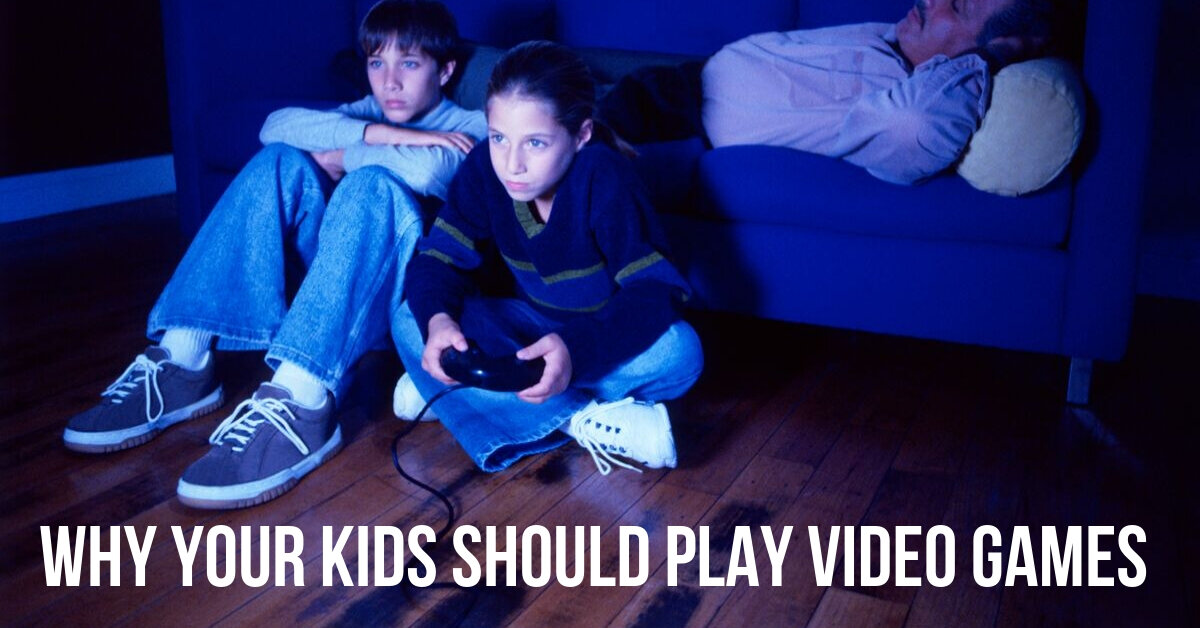 Video gaming in school children: How much is enough? Annals of Neurology, 2016; 80 (3): 424 DOI: 10.1002/ana.24745
Video gaming in school children: How much is enough? Annals of Neurology, 2016; 80 (3): 424 DOI: 10.1002/ana.24745
Cite This Page:
- MLA
- APA
- Chicago
Wiley. "How long should children be allowed to play video games?." ScienceDaily. ScienceDaily, 9 September 2016. <www.sciencedaily.com/releases/2016/09/160909112006.htm>.
Wiley. (2016, September 9). How long should children be allowed to play video games?. ScienceDaily. Retrieved November 21, 2022 from www.sciencedaily.com/releases/2016/09/160909112006.htm
Wiley. "How long should children be allowed to play video games?." ScienceDaily. www.sciencedaily.com/releases/2016/09/160909112006.htm (accessed November 21, 2022).
advertisement
Explore More
from ScienceDaily
RELATED STORIES
advertisement
Experts told when children can start playing computer games - Teacher's newspaper
We offer to dot the "and" in the issue of computer games, to understand their benefits and harms. Sooner or later, every parent wonders if it is worth letting children play strategy games, shooters and adventure games? Experts in the field of the game industry, psychologists and parents will help you figure it out.
Sooner or later, every parent wonders if it is worth letting children play strategy games, shooters and adventure games? Experts in the field of the game industry, psychologists and parents will help you figure it out.
Nowadays it is hard to imagine a world without a computer and the Internet. Humanity is developing, new technologies are emerging. Modern children "absorb" everything that is offered by manufacturers of different industries, including gaming. Of course, there are such mothers and fathers who completely forbid their children to play, believing that ordinary toys, outdoor activities and sports sections will be enough for quality development. But is it? Perhaps this approach is just a biased fear and unwillingness to delve deeper into the topic? To understand the issue, we took comments from experts in the field of gaming.
Director of the Streamfest festival, author of the Igroprom TV program on the Moscow 24 channel Mikhail Lisetsky told how to approach the issue of games to parents:
– There are educational games, and there are purely commercial ones, but nevertheless bearing payload. Introduce your child to those games that help to learn how to project situations, choose strategies and tactics, and solve complex problems. There are many games to keep attention, to develop abstract thinking. All these skills will help in the future. The main task of parents is to enter into a dialogue with the child, not to deny that the games are interesting, to try to delve into the topic themselves, to figure it out and find suitable games specifically for their own child, based on his interests. After all, without immersion in the topic, nothing good will come of it. Otherwise, there is a possibility that the child will be captured by a game for which his psyche is not yet ready. These are the moments that are dangerous. Must be the right direction. And who better to look up to than your own parents?
Introduce your child to those games that help to learn how to project situations, choose strategies and tactics, and solve complex problems. There are many games to keep attention, to develop abstract thinking. All these skills will help in the future. The main task of parents is to enter into a dialogue with the child, not to deny that the games are interesting, to try to delve into the topic themselves, to figure it out and find suitable games specifically for their own child, based on his interests. After all, without immersion in the topic, nothing good will come of it. Otherwise, there is a possibility that the child will be captured by a game for which his psyche is not yet ready. These are the moments that are dangerous. Must be the right direction. And who better to look up to than your own parents?
Psychologists speak quite positively about the topic of games, but they urge parents to be as immersed in the topic as possible. Elena Sultankina , psychologist, sand therapist, told how a child can competently start playing and how to avoid negative consequences:
– You can play, try to choose games that develop logic, thinking, attention.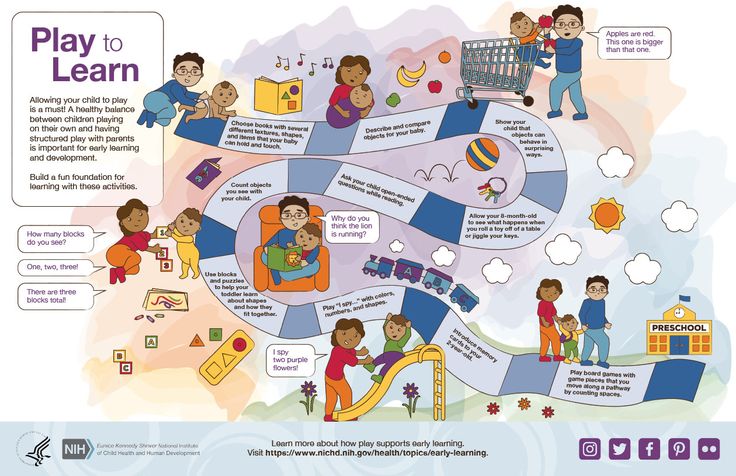 Games, as a rule, train memory well. They are useful if they are educational or developmental in nature. To start playing, in my opinion, it is better not earlier than 5 years, until visual-effective thinking is formed in a real situation, when there is a meaningful selection of the features of the object and the choice of influence on the object. When a child, before learning to count, must feel the counting sticks with his fingers.
Games, as a rule, train memory well. They are useful if they are educational or developmental in nature. To start playing, in my opinion, it is better not earlier than 5 years, until visual-effective thinking is formed in a real situation, when there is a meaningful selection of the features of the object and the choice of influence on the object. When a child, before learning to count, must feel the counting sticks with his fingers.
Of course, there are dangers from games: from bad posture, headaches, fatigue, reduced resistance to infections and poor eyesight, to addiction, which is a mental disorder. How much time to spend on games depends on age: 6 years old - no more than half an hour a day, 7-9 years old - no more than 1 hour a day, 10-12 years old - no more than 2 hours a day, 13-14 years - no more than 2.5 hours per day, 15-16 years - 3 hours a day. This is with a high-quality monitor and its parameters and, in order to avoid problems with posture, the correct posture.
Parents have a different approach to computer games. Some are ardent opponents, they prefer that children go in for sports and walk more. Others believe that modern technologies, including the help of a computer, are necessary for qualitative development and progress.
An opinion was shared by a mother of two children, a specialist in working with payment systems Evgenia Silkina :
- My son Sergei started playing at the age of 10 - mostly shooters and rpg games. Games did not interfere with his development in any way, on the contrary, he developed harmoniously. Now the son is already a student, he is 19 years old, there is no dependence on games, like most of his peers. He still likes to play sometimes. We gave our daughter Victoria a tablet for the first time at the age of three. She is currently three and a half years old, she already knows all the possible games for children, develops actively, dresses herself. I believe that today's children need games. Thanks to computer games, they learn about the world. Whether we like it or not, they have to live with these present realities.
Thanks to computer games, they learn about the world. Whether we like it or not, they have to live with these present realities.
Of course, there is no universal answer, to play or not to play yet. Every parent somehow knows the characteristics of their own child better than any specialist. It is necessary to look for a compromise and a golden mean. The main thing is to understand that you can and even need to play - only in moderation.
Previously, the network publication Uchitelskaya Gazeta talked about a study conducted in Sweden: young fans of computer games turned out to be smarter than their peers sitting in social networks. The results, published by Science Daily, showed that children 9-10 year olds who played games more than average increased their IQ by about 2.5 points between trials. Torkel Klingberg, Professor of Cognitive Neuroscience at the Department of Neurology at the Karolinska Institute, said the results of the study show that screen time generally does not impair children's cognitive abilities and that video games can increase intelligence.
How long can children sit at the computer?
- November 12, 2013
- 0+
- News Service
Irina Balyberdina
Can I let my child play at the computer?
There are a lot of opinions on this subject, and many are completely opposite.
- Yes, now is the era of the computer, and without it, nowhere.
- Yes, there are a lot of interesting educational computer games for the baby.
- Yes, computer literacy lessons are mandatory in schools and development centers.
But kindergartens have already abandoned experimental computer lessons with children, and experts do not recommend allowing preschoolers to play computer games.
But what about a child if his mom and dad spend all their free time at the computer, and he watches this "interesting toy" from the cradle?
The baby firmly develops a desire to get into this interesting world of adults, to learn the same things that they can do. Therefore, his craving for the computer is natural.
Therefore, his craving for the computer is natural.
What should we do as parents in this situation? Allow at your own peril and risk (because you really want the baby to be with the computer "on you") or forbid, risking creating unhealthy cravings in the child?
The main reason for the prohibition of computer games is the formation of gambling addiction. This is a mental disorder, a disease that is very difficult to treat, - shared child psychologist Oksana Lysikova. - And if the disease occurs at a very early age, then the cure is almost impossible. This controversial statement, however, is not a secret that during a computer game there is a so-called "replacement", when a person can confuse virtuality and reality. And for a little man with a fragile psyche, this is especially dangerous.
If your child began to get irritated, fall into hysterics and respond inadequately to turning off the computer (or depriving him of computer games) - all the signs of a gambling addiction are on the face.
Expert opinions differ:
On the one hand, there are approximate values for different ages:
• Children 5-7 years old from 15 minutes to half an hour a day.
• 7-12 years - not exceeding an hour a day.
• Adolescents 12-16 years old - about 2 hours a day.
Other experts believe that the duration of continuous work on the computer for children of different ages should be as follows:
5 years - no more than 7 minutes;
6 years - 10 minutes;
7-9 years - 15 minutes;
10-12 years old - 20 minutes;
13-14 years old - 25 minutes;
15-16 years old - 30 minutes.
In addition, between classes, if they involve a longer stay of the child in front of the screen, it is necessary to take breaks of at least 10 minutes.
It seems that every parent today knows what the harm of the computer is. It often replaces communication with loved ones and other activities for children and leads to a number of complications - neurological and ophthalmological problems, radiation, which is present even in the most modern models and to which the child's body is especially susceptible.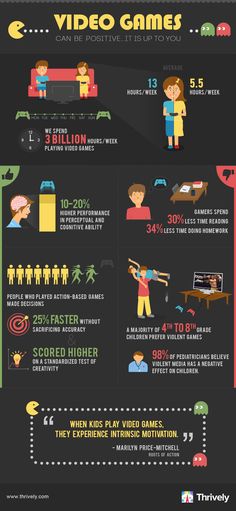
A new type of disease has been identified in children who have been excessively fond of computer games from an early age - video game epilepsy syndrome. In addition to the physical ailments described above, such children develop negative character traits: suspicion, suspiciousness, hostile-aggressive attitude towards relatives, irascibility.
To make your child's stay at the computer the safest, you need to remember to observe the PC work mode, and also that parents today have a real opportunity to control their children's stay at the computer, thanks to special programs.
Psychologists often talk about the restrictions on children's stay at the computer or in front of the TV screen. In their opinion, cartoons and computer games in the form and volume in which they are now presented to our children can not only suppress interest in contacts with other children, but also lead to a slowdown in the development of the child at a certain stage.
Children's passion for computers can also be reflected in the adult life of someone who was allowed to sit at the "computer" for a long time by their parents.

